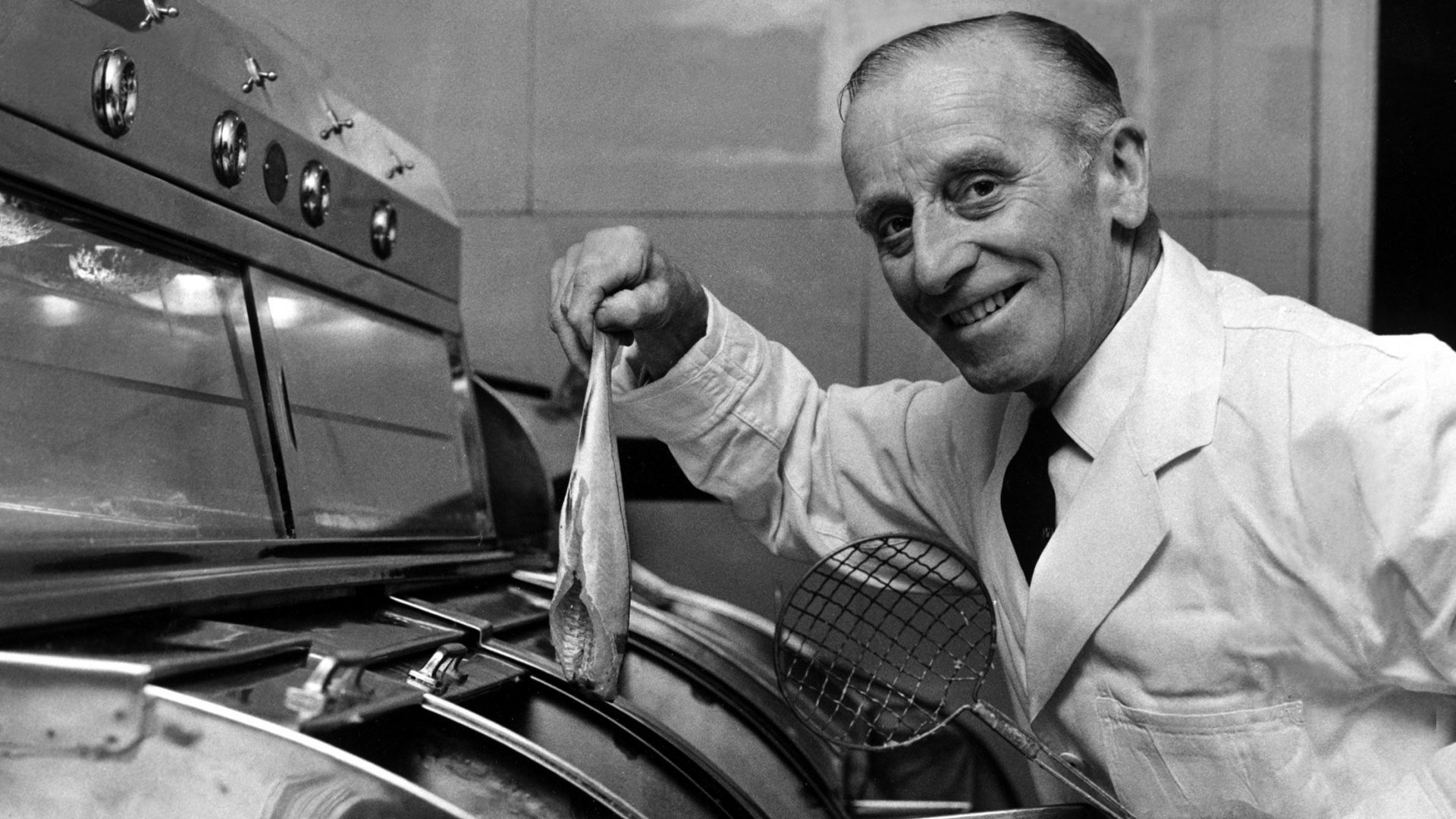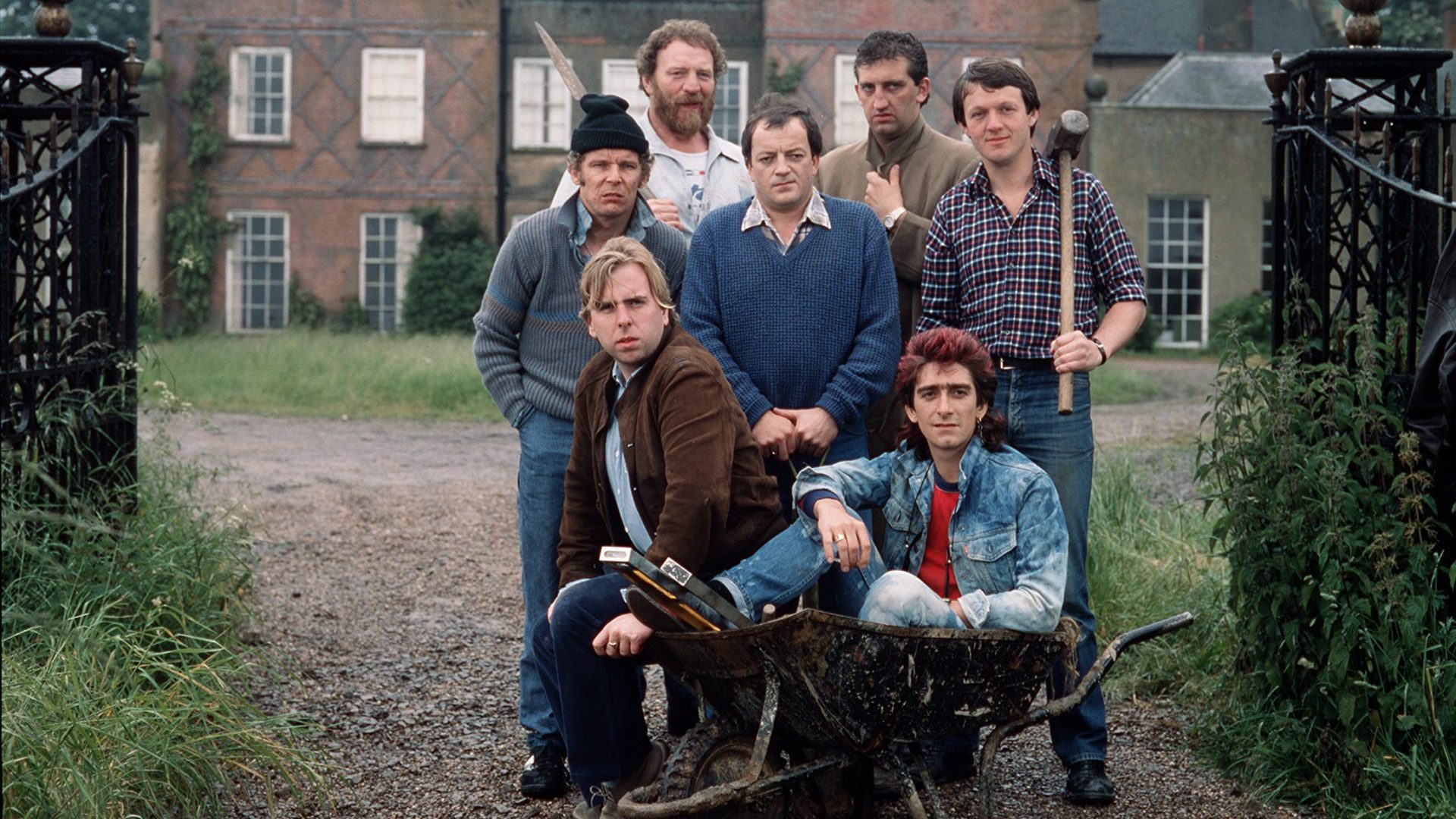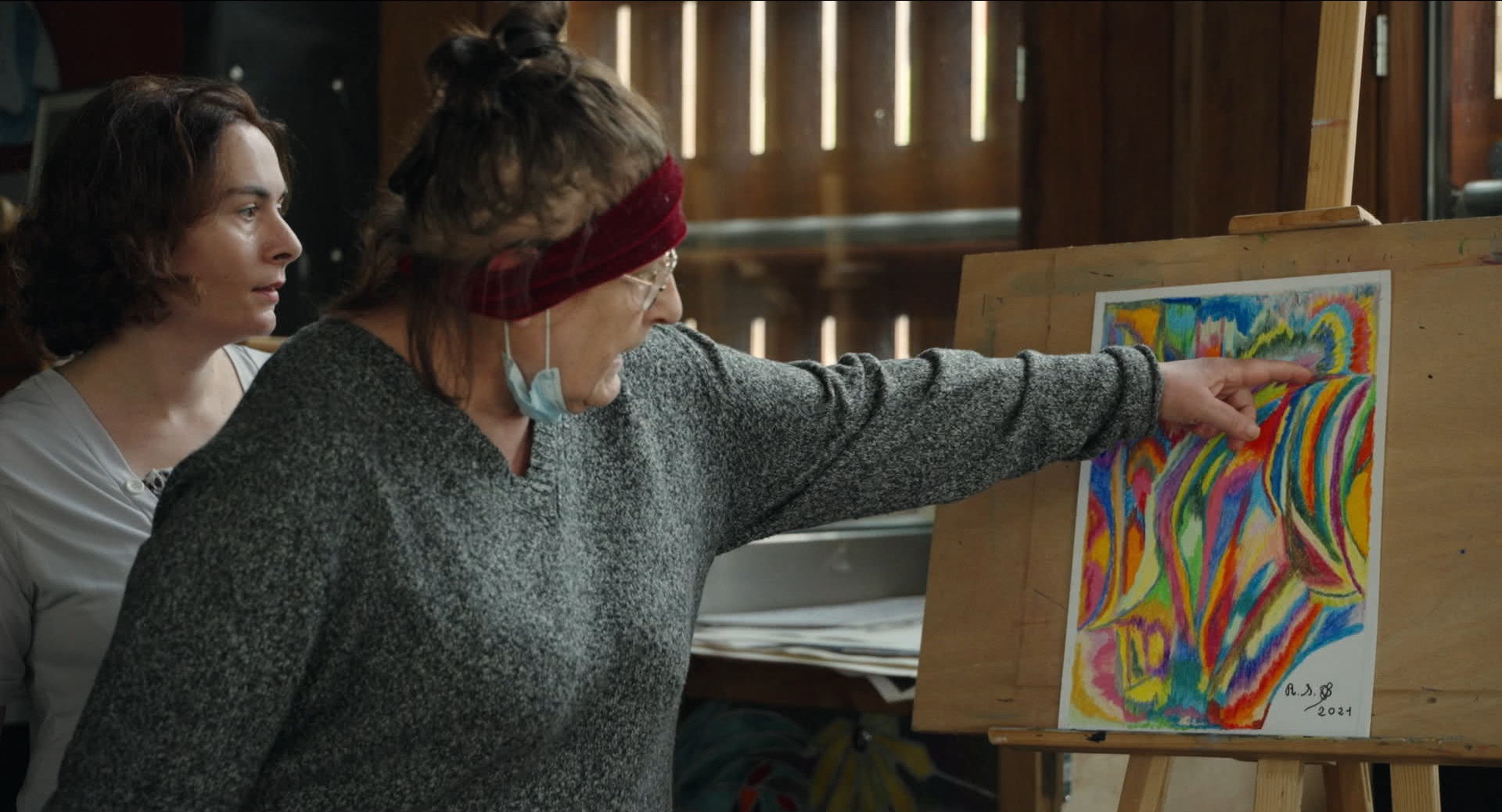Is there any keener sense of culinary anticipation than when you are handed a wrapped parcel of fish and chips? The combination of batter and warm paper creates an intoxicating aroma, the heat of its contents makes you pass it between your hands until you can sit down and unwrap the steaming culinary treasure within.
I have thought about this scenario a great deal since moving to a remote area where the nearest fish and chip emporium is more than an hour’s round trip, the first time I have lived somewhere without a freshly battered haddock within walking distance. I miss it, enough to find myself in the kitchen making a big jar of pickled eggs in a lame attempt to recreate a little of that chip shop ambience.
Often lauded as a great British invention, another benevolent example of our soft power in the world and a generous addition to the global cultural and culinary milieu, our claim to pairing the piscine with the potato is, like a disappointing batter, a little on the thin side. Indeed, evidence suggests we owe most of our thanks for fish and chips to the influence of Europe.
When I lived in Kent, my local chippy was run by an Italian family who every year would close for a month and decamp to their ancestral village near Naples. The son and heir of the business was a keen experimenter and became renowned locally for his willingness to deep-fry the most unlikely foodstuffs. I knew I had been accepted as a regular when I was handed a small battered sphere about the size of a ping-pong ball with the invitation, “try that”.
When I bit into it, the mixture of crispy golden batter, chocolate and slightly nutty filling revealed that I was eating, for the first and last time in my life, a deep-fried Ferrero Rocher. It was delicious.
In Dublin I lived a stroll away from Beshoff’s, an institution in the city founded by the extraordinary Ivan Beshoff. Odesa-born, as a young man Beshoff was a member of the battleship Potemkin crew who famously mutinied on the Black Sea in 1905. From there he made his way to London where he met Lenin, who in turn introduced him to the Irish trade union leader Jim Larkin, an encounter that inspired Beshoff to abandon plans to settle in Canada in favour of Dublin.
After being interned during the first world war and arrested as a suspected Russian spy in 1922, Beshoff opened his first fish and chip shop in 1924, married the daughter of General Richard Mulcahy of the Irish Republican Army, a key figure in the Easter Rising, expanded his culinary empire to the point where he ran his own trawler and remained a much-loved Dublin figure until his death in 1987 at the age of 104 when his sons took over the business.
These islands are rife with similar stories of batter-dunking immigrant dynasties, many of which are wrapped between the covers of Food of the Cods: How Fish and Chips Made Britain by Daniel Gray.
A wonderfully recondite combination of travelogue and the celebration of a stratum of social history long underappreciated, Food of the Cods is a warm, witty, authoritative and timely exploration of a dish facing a watershed moment thanks to the legacy of Covid lockdowns, post-Brexit supply issues and rising costs triggered by the war in Ukraine.
Gray travels the length and breadth of this island, from Stonehaven to Brixham, Whitby to the Rhondda Valley, in search of stories from both sides of the counter. The author of a string of books chronicling the delights of British life from football to reading, he is the ideal guide to a world whose social context has been too long overlooked. He is also excellent literary company. Like a JB Priestley for the 21st century, Gray is not just willing but tangibly excited to travel to places unlikely to tantalise more conventional travel writers – Mossley, Bilston, South Shields – and bring each to life in vivid, rich prose shimmering with warmth and a belief in the fundamental goodness of people.
The book is packed with golden nuggets. Who knew that Winston Churchill was a “convinced fish and chip loyalist”? That an Italian football international gave up the game in order to serve up fish suppers in Prestwick? That in early 20th-century Bradford, a fish and chip shop was a council-sanctioned requirement in every proposed new housing scheme? That the Scotsman welcomed fish and chip shops’ exemption from second world war rationing with: “It would have been unthinkable that the chip should have suffered in a war for democracy”?
In addition, Gray’s narrative is rife with immigrant success stories. He begins in Dundee with the story of a Belgian cobbler named Edward de Gernier who arrived in the city during the 1870s and was astounded that his local staple, the chipped potato, could not be had on the streets of his new home. By 1874 he had saved enough money to rent a pitch in Dundee’s Greenmarket arcade and open his own chip shop, shifting 400 portions on the first night alone.
When he branched out into mushy peas and devised a chip and pea combination still listed on Dundonian menu boards as the Pea Buster, de Gernier’s empire grew to six outlets that were run by his direct descendants until well into the 1960s, a deep-frying dynasty spanning almost a century.
While the Italian influence on the fish supper is significant across Britain, not least by my Ferrero Rocher-defiling Neapolitan friend in Kent, Scotland is where it is most keenly felt. Gray notes how the nation abounds with chip shops bearing the Italian names of their founders, from Iannarelli’s in Forfar to Crolla’s in Galashiels.
Of the millions of Italians who spread throughout the world at the end of the 19th century and in the early part of the 20th to escape crushing poverty, a significant number arrived in Scotland determined to grasp any opportunity. Some sold homemade ice cream or hot drinks from carts before working their way up to permanent premises from which they could also serve fish and chips, as cheap and straightforward a catering business as it was possible to devise.
By the 1930s, Italians were well-established: in Dundee between the wars, nine out of 10 fried fish outlets were Italian. Mussolini’s 1940 declaration of war, however, saw Italian men interned and their businesses attacked and ransacked across the country.
In Glasgow’s Port Dundas, one woman fought back. When a menacing crowd gathered outside her premises she flung open the door and cried, “Fuck Mussolini, fuck Hitler and fuck you all. Don’t touch anything, you bastards, you would all eat shite if I fried it”.
The crowd melted sheepishly away; the shop remained open and unmolested throughout the war.
Gray visits the famous Val d’Oro shop in Glasgow, giving a fascinating and moving account of a business that has remained in the same Italian family since 1938. Loyalty and thwarted dreams are immersed in the fabric of the building like a haddock in hot oil, creating a vital hub for the locality, an establishment that is in Gray’s words “a haven and somewhere to trust, a tiny society in a fractured city”.
Elsewhere he notes that the first people to fry fish in batter in Britain were most likely Portuguese Jews in London as far back as the 16th century. More recently he praises the contribution to the capital’s fish and chip heritage made by its Greek-Cypriot community, who by the 1970s owned 150 of London’s 800 fish and chip shops.
Such stories ensure that if one takes any impression away from Food of the Cods, it’s how the humble Friday night takeaway staple is a magnificent immigration success story.
Regional trends also inspire Gray’s piscine wanderings. It takes a special kind of dedication to travel to the Black Country purely to sample local delicacy the orange chip and to the North Sea-lashed Scottish east coast to visit Stonehaven, birthplace of the deep-fried Mars bar, but these culinary excursions are given extra depth thanks to Gray’s finely tuned eye for local colour and ear for anecdote and easy conversation.
His turn of phrase is never less than exemplary. In Cardiff “a man balances his spent takeaway carton on top of an overflowing bin with the precision of a keyhole surgeon playing jenga”. At a fancy fish and chip establishment in Devon his dish arrives with “a pickle curled up as if napping in a doorway and a cardboard gondola of tartare sauce”. He can even make watching a chip van in rural Yorkshire opening its hatch to an eager queue of customers sound as charmingly bucolic as an 18th-century pastoral scene by Gainsborough.
“The batter looked almost pumpkin coloured,” he writes of his portion, “giving the meal an autumnal, harvest box serenity.”
British cuisine is an unlikely source of literary inspiration. Fish and chips an even narrower band of subject matter. Few writers could make such apparently unpromising material come alive with perceptive wisdom, sensitivity and prose that sings, but Daniel Gray has pulled it off here.
“It looked a bit like the remains of an animal that had been burned unidentifiable in an Australian bush fire,” he writes of his first deep-fried Mars bar. “It tasted ridiculously, absurdly heavenly.”
Food of the Cods: How Fish and Chips Made Britain by Daniel Gray is published by Harper North, price £12.99




